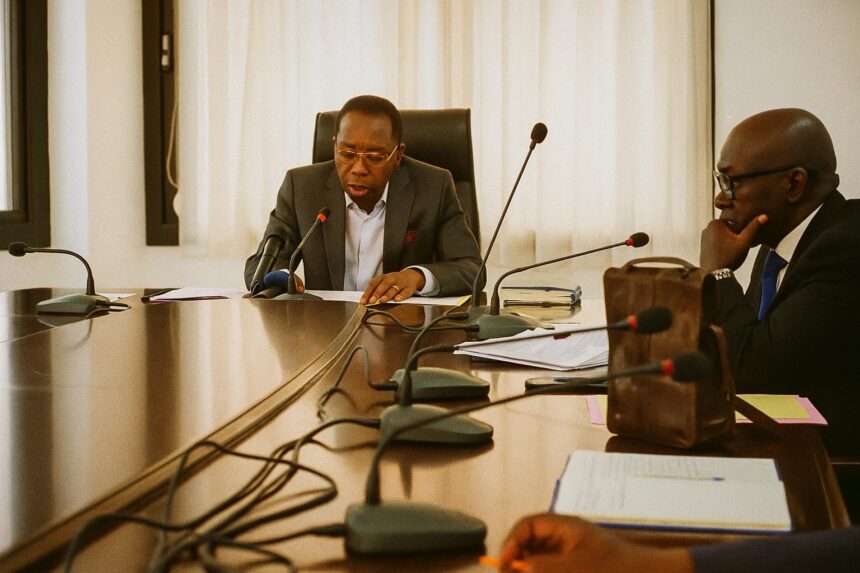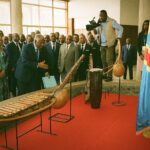Strategic expansion and youth diplomacy
The Congolese Football Federation’s executive committee, convening in Brazzaville under President Jean Guy Blaise Mayolas, has sanctioned a calibrated enlargement of Ligue 1 to sixteen clubs for the 2025-2026 cycle. While two additional berths might appear a modest numerical adjustment, officials frame the decision as a diplomatic gesture toward provincial academies whose progression had stalled after the temporary suspension of Ligue 2 and the domestic cup earlier this year (Fecofoot communiqué, 19 July 2025). The measure, they argue, restores credibility to promotion pathways, dampens centrifugal pressures from regional associations and, crucially, projects an image of institutional agility at a moment when African football governance is under close international scrutiny.
Balancing domestic calendars and CHAN duty
Behind the technocratic language of league tables lies a more geopolitical calculation: Congo-Brazzaville will host its CHAN qualifying fixtures in early 2026, and a competitive domestic ecosystem is indispensable for assembling a cohesive A’ squad. Since 18 July the prospective national team has been sequestered at the Igné technical centre on the Djoué-Léfini corridor, engaging in a micro-cycle emphasising tactical cohesion and altitude conditioning, according to staff briefings shared with local press. By broadening Ligue 1, selectors expect a larger pool of match-fit players while avoiding the fatigue that accompanies congested mini-leagues. Diplomats posted in Brazzaville privately welcome the calendar rationalisation, noting that predictable kick-off windows aid embassy security teams and cultural outreach planners.
Gender inclusion and club licensing push
Fecofoot’s communiqué places conspicuous emphasis on the women’s game: the championship title will be determined through a play-off steered by the National Women’s League, with the eventual winners earning a CAF Women’s Champions League ticket, provided they satisfy coaching-certificate thresholds and medical compliance protocols now obligatory across the continent (CAF Circular, April 2025). Officials concede, off-record, that only three Congolese clubs presently meet those benchmarks, yet the licence carrot is already stimulating new sponsorship courtships in Pointe-Noire and Owando. Such developments dovetail neatly with the government’s wider human-capital agenda, which lists female sports empowerment among its 2026–2030 social pillars.
Regional tournaments and soft power calculus
Parallel to domestic reform, Brazzaville negotiators are finalising dates with Kinshasa counterparts for the revived Fatsi Cup, an under-20 showcase historically viewed as a barometer of Central African détente. Although the timetable remains fluid pending transport-corridor upgrades along the Congo River, diplomatic sources maintain that both capitals see the tournament as a low-risk platform for people-to-people diplomacy. On the youth side, zonal competitions at U17 and U20 levels will continue to operate under an east-west bifurcation, mirroring administrative divisions and ensuring travel parity for remote prefectures such as Likouala. Observers in Addis Ababa suggest the model could even inform AU proposals for a continental youth league.
Infrastructure and governance calculus
Expanding a league entails more than drafting fixtures; stadium compliance, broadcast rights and medical logistics require careful sequencing. The Ministry of Sports has already earmarked incremental budget lines for pitch renovations in Dolisie and Oyo after a joint inspection mission with CAF engineers earlier this quarter. Finance ministry insiders indicate that public-private partnerships, leveraged through a sovereign guarantee facility managed by the Development Bank of Central Africa, will underwrite most upgrades, shielding the national balance sheet from shocks amid volatile oil revenues. In governance terms, observers from FIFA’s Regional Office for Francophone Africa have noted the federation’s increasing recourse to transparent tendering, an approach consistent with President Denis Sassou Nguesso’s public commitment to institutional modernisation. For the moment, stakeholders appear aligned: clubs receive a clearer horizon, supporters regain weekend rituals and policymakers accrue the soft-power dividends that only a vibrant national league can deliver.



















